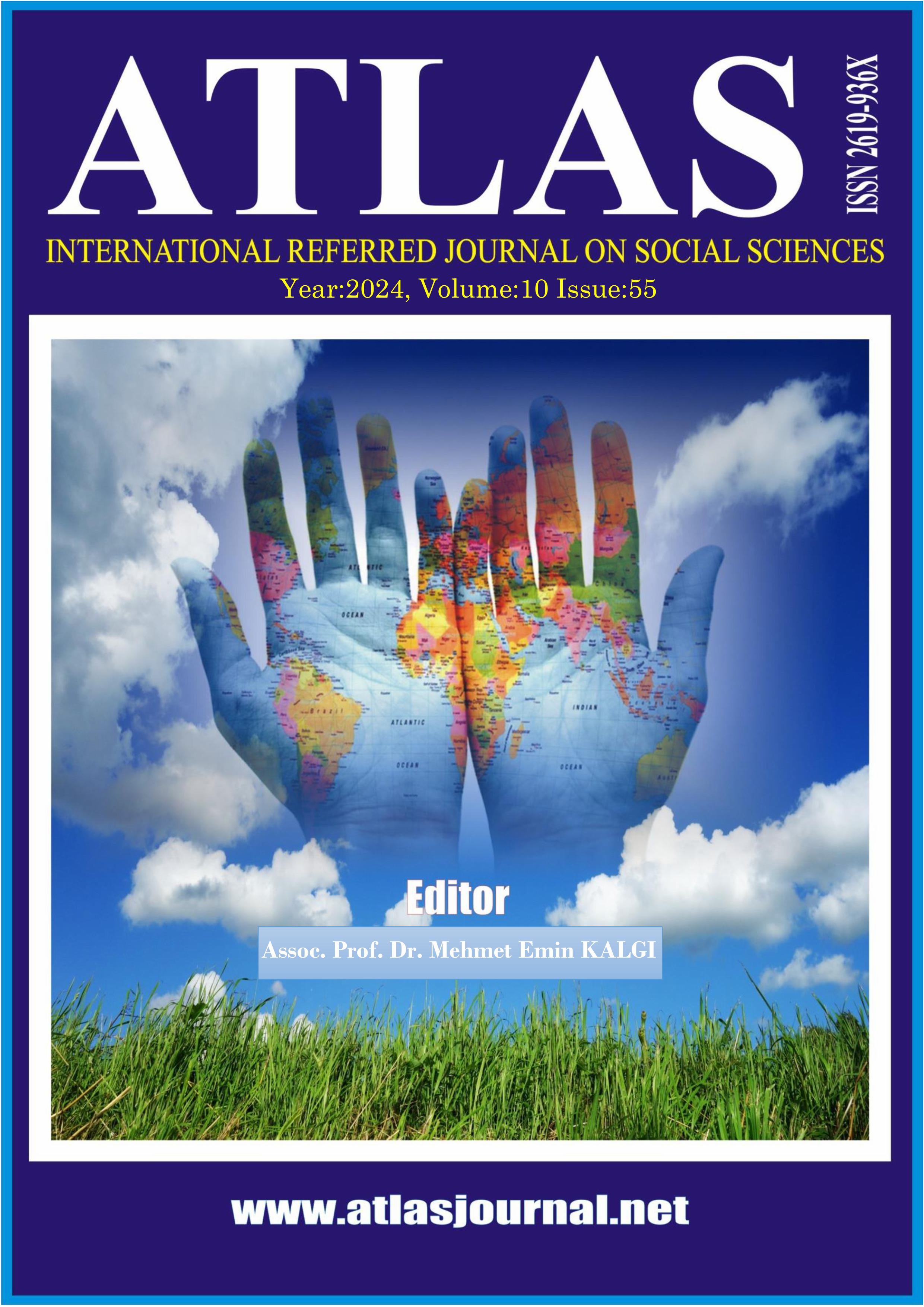Banquet Scenes of the Late Hittite Period
DOI:
https://doi.org/10.5281/zenodo.14510403Keywords:
Late Hittite, Hittite Empire, Banquet, ZincirliAbstract
The Late Hittite period is marked by the emergence of independent city-states in southern and southeastern Anatolia following the collapse of the Hittite Empire. This cultural heritage not only preserved Hittite traditions but also incorporated artistic and ritualistic elements influenced by Assyrian and Aramean cultures, creating a richly diverse legacy. Banquet scenes from this era offer crucial insights into the social, religious, and ritualistic life of the time. These scenes are often depicted on stone reliefs, seals, and valuable objects. They commonly portray kings and queens seated at lavishly adorned tables, surrounded by attendants and accompanied by musicians. Significant examples of such depictions can be found in regions like Karatepe, Zincirli, and Karkamış. For instance, the reliefs from Zincirli depict a king seated on a throne, holding a goblet, with an array of sumptuous dishes displayed before him. Additionally, scenes from Tell Tayinat highlight sacrificial ceremonies and feasts dedicated to the gods. The artistic style of these works reveals a progression from traditional Hittite motifs to Assyrian influences. Early depictions feature cross-legged tables and characteristic Hittite styles, while later scenes display rectangular tables and motifs inspired by Assyrian art. These banquet scenes serve not only as artistic expressions but also as visual documentation of social hierarchy, religious beliefs, and cultural transformations. The banquet scenes of the Late Hittite period provide invaluable insights into the social structure, religious practices, and intercultural dynamics of the time, making them essential resources for archaeological and historical research.
References
Akurgal, E. (1949). Späthethitische Bildkunst: Archaeologisches Institut der Universitaet Ankara.
Akurgal, E. (1998). Anadolu uygarliklari: Net Turistik Yayinlari.
Ardzinba, V., & Uravelli, O. (2010). Eskiçağ Anadolu ayinleri ve mitleri: Kafdav Yayınları.
Ay, Ş., & Şahin, K. (2014). Eski Yakindoğu'da Yemek Simgeselliği Üzerine Bir Değerlendirme. Pursuit of History(12).
Bryce, T. (2003). Hitit Dünyasında Yaşam ve Toplum, çev. Müfit Günay, Ankara: Dost Kitabevi Yay.
Bryce, T. (2012). The World of The Neo-Hittite Kingdoms: A Political and Military History. Oxford Oxford University Press.
Collins, B. J. (2007). The Hittites and Their World. Atlanta: Society of Biblical Literature.
Collon, D. (1987). First impressions: cylinder seals in the ancient Near East: British Museum Publications Limited.
Coşkun, İ. (2019). Eski Ön Asya’da ölü yemeği geleneği. In S. A. Dinçer, S. Sönmez, M. Bostancı, & E. Özçoban (Eds.), Sosyal Beşeri ve İdari Bilimler Alanında Araştırma ve Değerlendirmeler 2 (ss. 335–352). Gece Pegem Akademi Yayınları
Darga, M. (1992). Hitit sanatı: na.
Delaporte, L. (1936). Les hittites (Vol. 8): La Renaissance du livre.
Dinçol, A. (1982). Hititler. Anadolu Uygarlıkları Ansiklopedisi, 1, 18-136.
Glassner, J. (1987). Mahlzeit. A. In Mesopotamien. Reallexikon der Assyriologie, 7, 259-267.
Gurney, O. R. (2001). Hititler,(çev. Pınar Arpaçay). Ankara: Dost Kitabevi.
Güterbock, H. G. (1969). An Initiation Rite for a Hittite Prince. D. Sinor (éd.), American Oriental Society Middle West Branch. Semi-Centennial Volume, Bloomington—Londres, 99-103.
Hoffner Jr, H. A. (1972). The Records of the Early Hittite Empire (c. 1450-1380 BC). In: JSTOR.
Otten, H. (1956). Ein Text zum Neujahrsfest aus Bogazköy. Orientalistische Literaturzeitung, 51, 101.
Ökse, A. T. (2005). Eski Çağdan Günümüze Ölü Gömme ve Anma Gelenekleri. Türk Arkeoloji ve Etnografya Dergisi, 5, 1-8.
Özyar, A. (2011). Geç Hitit Krallıkları. In Arkeoatlas(Özel Basım) (pp. 370-389).
Tsukimoto, A. (1985). Untersuchungen zur Totenpflege (" kispum") im alten Mesopotamien: Butzon & Bercker.
Ünal, A. (2007). Anadolu’nun En Eski Yemekleri. Hititler ve Çağdaşı Toplumlarda Yemek Kültürü, Homer Kitabevi ve Yayıncılık, İstanbul.
Woolley, C. L. (1921). Carchemish II: The town defenses. London: Printed by the order of the Trustees.
Downloads
Published
How to Cite
Issue
Section
License
Copyright (c) 2024 Atlas Journal

This work is licensed under a Creative Commons Attribution-NonCommercial 4.0 International License.


